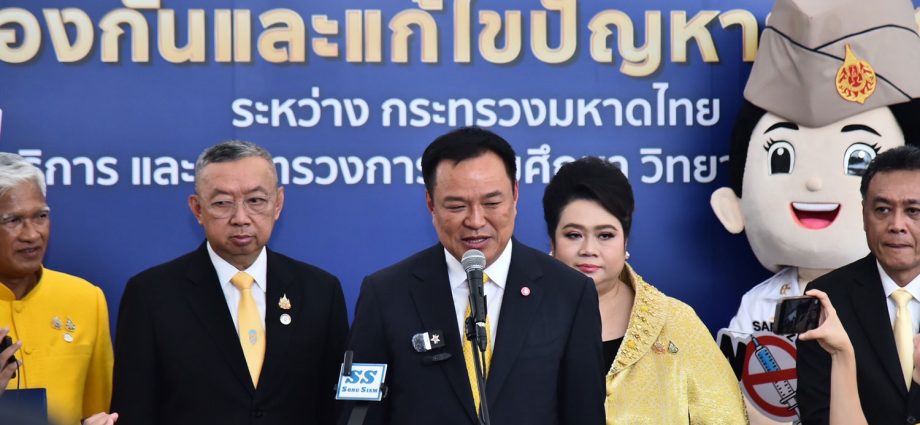
Three key ministries have agreed to step up drug testing of staff involved in drug suppression, with rehabilitation and medical treatment for any who test positive.
However, testing will remain voluntary so as not to infringe on workers’ rights, Interior Minister Anutin Charnvirakul said.
The three signatories to Wednesday’s memorandum of understanding (MoU) were the Ministry of Interior (MoI), Ministry of Education, and Ministry of Higher Education, Science, Research and Innovation.
“The government has put drug suppression on the national agenda,” Mr Anutin said.
“Along with heightening our crackdown on drugs, we also have to reduce the number of addicts by preventing children and other young people from becoming addicts.”
Under the agreement, the three ministries will have a shared database of known drug users that will also chart their progress through rehabilitation or treatment, MoI spokeswoman Traisuree Taisaranakul said. The information would be kept strictly confidential.
Prior to the signing of the MoU, the MoI on July 18 launched a voluntary drug-screening programme targeting staff at all levels, including defence volunteers and village and tambon leaders, Mr Anutin said.
Citing figures recorded by the MoI as of May 12, Ms Traisuree said a total of 9,103 drug dealers had been identified and 4,779 (52.50%) of them subsequently detained.
Of the 56,863 drug addicts identified, 36,204 (63%) had been entered into rehabilitation and treatment as required by the law, while 76% of the 17,897 people found to have mental problems resulting from drug abuse had been sent to psychiatric hospitals for treatment, she said.
On Tuesday, Prime Minister Srettha Thavisin told reporters after the weekly cabinet meeting that he had instructed the MoI, Royal Thai Police, Office of the Narcotics Control Board (ONCB) and other state agencies to explore ways to raise the efficiency of their drug suppression work, and to consider expanding their cooperation to cover more provinces, up from 25 at present.
These agencies might also consider offering incentives for a successful crackdown if necessary to improve work efficiency, he said.
Mr Anutin said on Tuesday that soldiers taking part in drug suppression cooperation would be issued with a special ID card by the ONCB. This would empower them to search places suspected of involvement in the drug trade, temporarily detain suspects and test them for drug use.

